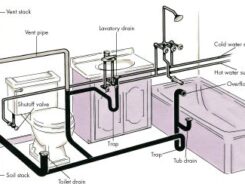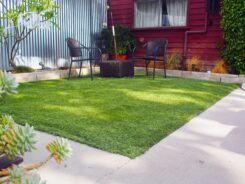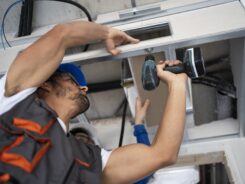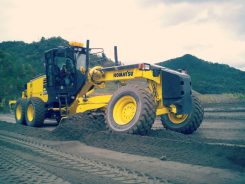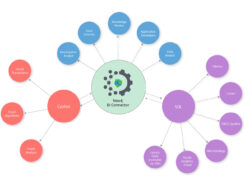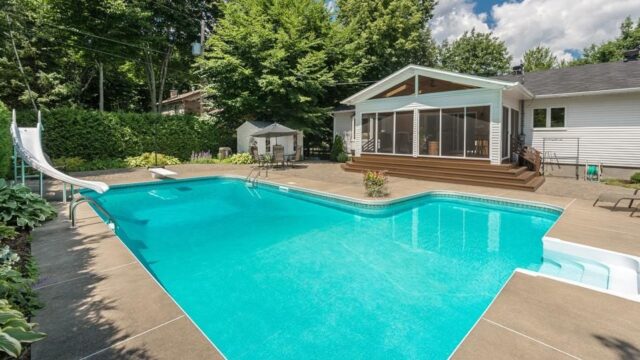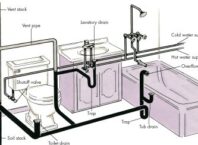Most homeowners want to make their homes the coolest in the block. Once in a while, you don’t want to leave your compound and want to hang around your home’s outdoor space. If you’re a homeowner who enjoys doing those extra home renovations, you need to have a legit and reasonable plan on how to do it. One fantastic addition that most homeowners often think about is a home swimming pool.
In this article, you’re going to learn everything there’s to know about adding that pool to your home.
Questions To Ask Yourself Before The Pool Installation
- Why Do You Need It?
Are you adding a pool as a spot for recreation, exercise, beauty, children, or your friends? Having a clear purpose for why you need a pool in your home compound makes it easy for you to take the next step.
- Is It Covered in Your Home Insurance?
Insurance varies based on different companies. For some, home insurance covers your swimming pool while some covers do not. It would therefore be essential to discuss this with your insurance company before building your pool.
- Are You Ready for The Installation Costs?
Pool installation is not a cheap affair. You will need to charge lots of your time, energy, and money into it. Every step you make towards making this happen involves money. Some of the significant costs involved are in the:
- Local authority permit
- Pool contractor and labor costs
- Excavation costs
- Construction materials -concrete, tiles, or blocks
- Can Your Home Accommodate One?
Yes, we agree that you’ve been the homeowner for many years now, and you can do renovations without having to get consent from anyone. However, some home additions need approval. The same measure of seriousness required in knowing whether the land is suitable for home construction applies when considering building swimming pools.
The site in question is critical when deciding the ease in construction, size, and shape of the swimming pool. For example, it can be tough to construct a swimming pool on rocky ground but easier to build on a leveled site.
Also, every city has different requirements in regards to other constructions. That said, ensure that you get approval from a certified pool contractor in your area to kick off the project may it be indoors or outdoors. It will be ignorant not to get permits for such major projects and get yourself in trouble if something goes wrong.
- Where Will the Pool Be?
Depending on the size and space in the home and the homeowner’s preference, they may want an indoor pool, while some may wish for an outdoor pool. However, in most setups, the pool goes outside. The location of a swimming pool will be based on other factors mainly:
- Accessibility and Privacy
- Safety and ability to supervise – children, pets, etc.
- Sun and wind exposure
- Storage of swimming pool equipment
- Location of utilities – telephone, gas, water lines, etc.
All these will help you determine the best spot for your swimming pool.
During The Pool Installation
- Get A Dependable Pool Contractor
Are there experienced pool contractors in your area? The person you choose to get the job will determine how the final product will be depending on how well they do the job. You won’t have significant maintenance expenses moving forward. Here are ways to help you choose one:
- Years of experience
- Proof of license and insurance
- Evidence of previous jobs or designs
- Interact with people who have had their construction handled by the said contractor
A good contractor should also be good at the whole design work and be aware of the latest building restrictions and proper zoning requirements. If you’re unsure of the best contractor to settle for, do not feel shy to ask for referrals from friends, neighbors, or other building contractors who have been in the job for a long time.
- The Type of Pool
The type of pool you envision for your home will mostly depend on the space, size, and budget. Your contractor should guide you and help you choose the best setup for your home during the site inspection and design process. However, here are two main types of pools that you should know about;
- Above-Ground Pools are smaller, pocket-friendly, require less maintenance, and take less time to install. They don’t need any excavation process, but they have a shorter lifespan.
- In-Ground Pools are sizable, take longer to install, and are expensive to install and maintain. They also require excavation for them to be set up. There are several options of in-ground pools that you can research or discuss with your pool contractor and settle for the best that suits your needs.
- Duration of Pool Installation
There are bound to be unprecedented delays in any construction process, but these shouldn’t deter you from setting up the pool that you need. Depending on the estimation time discussed, the process could take longer or shorter. Here are several factors that determine how long the construction process will take:
- The main contractor and the workers
- Time taken to get the permits
- Material suppliers
- Weather
- Excavation time
- Pool size
- Type of pool
It’s best to know how to deal with some of these things as early as possible since stalling the projects makes you spend more money than you should.
After the Pool Has Been Installed
- Yard Condition
Usually, during any construction process, there is bound to be a lot of construction clutter that’s left behind. It will be almost impossible and overwhelming to clean out the mess yourself after the whole construction process. For this reason, it will be advisable to get yourself a reputable junk removal company to clean up and dispose of all the construction junk.
A company like Junk Rescue has large dumpsters and the expertise to take care of your compound in a shorter duration of time. In a few hours, they will restore your compound to its normal clean state.
- Running Costs
If you’ve gotten here so far, it means you’re ready for the costs involved. The whole installation process was never a cheap affair; therefore, you don’t expect your utility bills, especially the electricity, to remain the same.
Your home maintenance pool equipment mainly depends on electricity to maintain it. Therefore, it is a necessity that you can’t avoid. Remember, how well you keep your pool will determine its lifespan.
- Maintenance
The idea of having a beautiful pool in your yard is terrific, but without a proper maintenance routine, it is not bound to last. A poorly maintained pool will breed up lots of other issues in the long run, and you may end up losing the home investment that you worked so hard for.
On average, a complete maintenance weekly routine should only take you an average of 8-12 hours. If the process seems to take up much time for you, consider hiring a pool maintenance company to help you out.
- Add Safety Measures
Many things can go wrong after a pool installation, especially when children and pets are running around. However, it’s essential to have measures in place that ensure your homestead is fully protected from potential hazards for general safety purposes. Some of the best safety measures are:
- Set safety pool rules
- Learning basic first aid, especially CPR
- Have first aid and personal safety equipment
- Building a pool fence
- Installing an alarm system
- Rescue equipment
- Store chemicals safely
With these and many more, you can run your home pool with peace of mind.
Installing a swimming pool in your home sure is a long process, but not impossible. Take all the time that you need and start the process when you’re ready. Do not be in a rush to go through the whole process patiently, and you will not regret building your home dream pool. In the end, this is a worthy investment.





